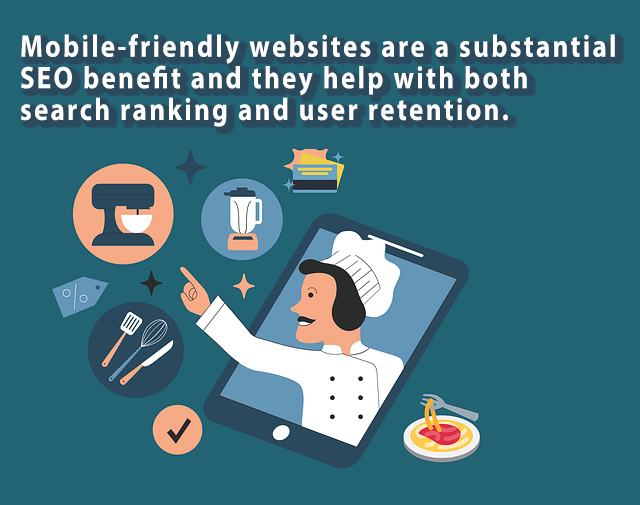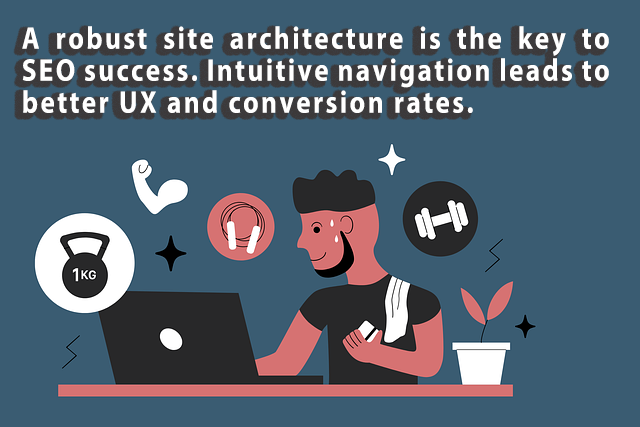Online stores have become the nearly-universal go-to places for convenient trade. But, since this type of platform has become the default, most businesses have to outrank their competitors in a functional way.
This is where technical SEO for ecommerce can be critical for standing out from online traffic and ahead of the competition – by optimising the underlying framework of your platform, you can help it skyrocket to the coveted top ten search result positions.
There are a lot of technical elements that go into this and in this article we will demystify this beneficial but often underrated process.
Foundations of Technical SEO for Ecommerce
Before diving into the intricate details, it’s essential to grasp the foundational principles of technical SEO for ecommerce platforms. Think of it as the backbone that supports the entirety of your optimisation efforts. This encompasses not only the technical aspects themselves but also their seamless integration with on-page and off-page SEO strategies.
Crawling and Indexing
Effective technical optimisation begins with the core processes of crawling and indexing. Ensuring they are executed properly is akin to paving a clear path for search engines to navigate through your website. This entails optimising your robots.txt file and crafting a well-structured sitemap.xml that guides search engine bots to your most critical pages. For the most part, these are the so-called money pages, that have services or products on them
An equally critical facet is managing duplicate content, a common hurdle in ecommerce. Canonical tags and meticulous 301 redirects are your tools for overcoming this challenge, as having two pages compete for the same words can lead to keyword cannibalisation.
Site Architecture and Navigation
The architecture of an online store can either facilitate or hinder its SEO success. A well-organised site that intuitively categorises products, subcategories, and product pages lays the foundation for an excellent user experience and search engine readability.
Implementing breadcrumb navigation further enhances user experience, allowing both visitors and search engines to navigate your site with ease. Bots especially can gain a more comprehensive understanding of your platform’s hierarchy, which is crucial for successful technical SEO for ecommerce websites.
Increasing Page Speed is Among the Top SEO Services for Ecommerce Websites
Page speed has transcended from being a mere ranking factor to a crucial user experience metric and that’s why making sure it’s optimal is among the most important SEO services for ecommerce websites. Its impact on user engagement and search rankings cannot be overstated.
To make a page load quicker, consider compressing images just enough so that they don’t weigh down the entire loading process. Embracing a responsive design also plays a pivotal role, ensuring that your platform’s speed remains optimal across various devices, like tablets and phones.
Mobile Friendliness
The smartphone revolution has cemented the significance of mobile optimization, as many people scroll through online stores while in transit, for example. This is why a mobile-friendly UI/UX is no longer optional, but essential.
Responsive design emerges as the go-to solution, adapting your platform seamlessly to different screen sizes. It should also be noted that there exists a strong correlation with both search ranking and user retention, because a well-made UX design can keep visitors on your platform longer. All these reasons make page speed optimisation one of the most important SEO services for ecommerce sites.
Do you need an experienced digital marketing company in the UK with a proven track record? Zahara Consult is here to help. We offer professional technical SEO Services and invaluable experience in the ecommerce sector.
Contact Us for a Free Consultation!

Keywords are a Priority in Technical SEO for Ecommerce
Keywords are the currency of search engines, and integrating them into your platform’s technical elements can greatly impact its relevance. One of the ways this is done is by crafting keyword-rich URLs that succinctly convey the content of the page.
Meta titles and descriptions are another avenue for keyword incorporation, offering both search engines and users a glimpse into your page’s content. As the saying goes: if it’s good for the user, it’s good for SEO.
One of the ways you can elevate your keyword strategy by using semantic keywords, which broaden the context and depth of your content. This can also apply for on-page optimisation – having variations of key phrases is like casting a large net, which is a good strategy for technical SEO for ecommerce sites, as it can bring more customers to your platform.
Structured Data Markup
Structured data, often presented through schema markup, adds an extra layer of information to your content. Its impact on search results is strong, as it enhances the way your content is displayed in them, and leads to higher click-through rates.
When applied to technical SEO for ecommerce platforms, schema markups can highlight product details, reviews, pricing, and availability, giving potential customers a snapshot of your offerings without even clicking through.
Canonicalization and Pagination
Ecommerce platforms often grapple with pagination and duplicate content due to the sheer volume of products and pages. Effective management of these aspects is paramount. Canonical tags act as guiding beacons for search engines, consolidating link equity and preventing confusion stemming from duplicate content.
A well-executed pagination strategy by an experienced SEO team further aids navigation. By providing clear indicators of a series of pages, you guide both search engines and users alike, which is a win-win situation, as both of those feed off each other.
HTTPS and Security
Beyond encryption, HTTPS has earned its place as a search ranking signal. Migrating your ecommerce platform to it comes with multifaceted advantages, including enhanced security, user trust, and search visibility.
Also, the presence of SSL certificates adds a layer of authenticity, which is critical for instilling confidence in your customers’ online transactions. Security, in tandem with SEO, creates a robust digital ecosystem, which is greatly beneficial for any business, as users are more likely to use a platform that makes it clear it’s trustworthy.
URL Structure and Permalinks
URLs are more than mere addresses: they are valuable pieces of the puzzle that is technical SEO for ecommerce. Designing optimisation-friendly URLs involves a balance between descriptive content and brevity.
Zahara Consult offers you a comprehensive suite of Digital Marketing Services from Community Management to digital PR and more!

Auditing and Monitoring: the Tailends of Technical SEO for Ecommerce
One of the basic elements of technical SEO for ecommerce platforms are regular audits that serve as health checks for the website itself. They can identify and rectify potential issues before they have the chance to escalate.
Using tools designed for this purpose can empower your online business to pinpoint and address technical deficiencies proactively. By monitoring site performance, indexation status, and crawl errors, any online store can maintain a robust search engine presence.
Server and Hosting Considerations
Your hosting choice wields a more substantial influence on SEO than you might think. It’s not just about server space; it’s about reliability, uptime, and their ramifications on search rankings. When it comes to technical SEO for ecommerce brands, having a site that is less likely to crash due to an influx of traffic is paramount.
A slow or unreliable server can tarnish user experience, which leads to increased bounce rates. Therefore, carefully evaluate your hosting options and align them with the specific demands of your operation.
Internal Linking Strategy
Internal linking holds the potential to be your secret weapon when working on technical SEO for ecommerce platforms. Beyond just enhancing navigation (which is important), an effective internal linking strategy bolsters your site’s architecture and aids search engines in discovering content hierarchies within it.
Creating a hierarchical linking structure for category, subcategory and product pages helps distribute link equity across your platform. By employing anchor texts strategically, you infuse keywords with relevance and depth. For example, in a text about camera equipment, the words saying “DSLR lenses” can be used as a link to that very category page.
XML Sitemaps and Search Console
XML sitemaps function as your platform’s navigational chart, guiding search engine bots to your most important money-making pages. Generating and submitting them is a meticulous process that is best handled by a dedicated team of technical SEO experts.
This is where Google Search Console enters the scene as your monitoring hub, offering you valuable insights into indexation, crawl issues, and alerts. This data can be a useful guide for troubleshooting and refining your SEO efforts.
404 Error Handling
Even the most meticulously designed ecommerce platform encounters 404 errors. What matters is how you manage them. Having an effective strategy to handle and minimise these errors is pivotal.
Customised 404 pages not only provide users with a helpful direction but also retain link equity that could otherwise be lost. Proper redirects can not only salvage user experience but also maintain your SEO foundation.
Content Delivery Networks (CDNs)
Content Delivery Networks (CDNs) introduce a global dimension to your ecommerce platform’s performance. This is done by distributing content across various servers. CDNs have the function to optimise load times for users across the world. This enhanced speed contributes not only to a better UX but also improves the technical SEO for ecommerce platforms as a whole, which is a win-win situation for both search engine ranking and site performance.
Well-Crafted Product Pages are Foundational SEO Services for Ecommerce Websites
Product pages are the heart of any platform and as such, their optimisation requires meticulous attention to detail. Beyond engaging product descriptions and compelling imagery, image optimisation plays a pivotal role, when it comes to SEO services for ecommerce websites.
Also, user-generated content and reviews lend credibility and SEO value to your products. Here is another place where utilising schema markups for product details enriches search results, providing people with comprehensive information at a glance.
Localization and International Technical SEO for Ecommerce
Expanding your horizons to international markets necessitates a sophisticated approach and here is where localisation in technical SEO for ecommerce platforms can be used as a strategic weapon.
This approach isn’t limited to translation; it encompasses cultural nuances, currency conversion, and shipping considerations. For example, the utilisation of hreflang tags signals to search engines the languages and regions your content targets, contributing to accurate indexing and relevant search results.
If you want to read more on the topic of area-specific optimisation, definitely read our guide “Local SEO: A Beginner’s Guide to Ranking in Local Search”.
Does SEO work for eCommerce platforms?
Yes, SEO is vital for ecommerce platforms for a lot of reasons. It improves visibility, ranking, and organic traffic, leading to higher sales and better customer engagement, which is important to any business.
Why are hreflang tags important for technical SEO?
Hreflang tags aid technical SEO by guiding search engines to display accurate language or region-specific content. This ensures precise targeting and enhances user experience, both crucial for international sales.
What is technical SEO in eCommerce?
Technical SEO in ecommerce focuses on optimising website infrastructure, speed, mobile-friendliness, structured data, and navigation to enhance search engine crawlability and user experience. This has the end goal of driving more sales and engagement.


